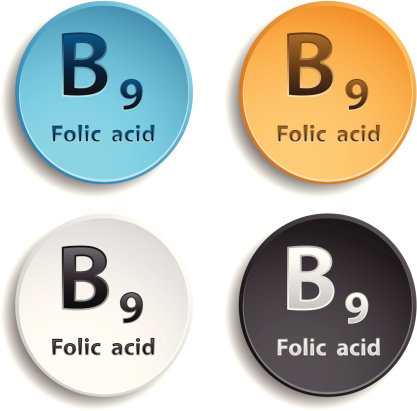Content Sections
There are more than a few noises that suggest the UK Government has finally bowed to pressure to introduce the mandatory fortification of flour with folic acid in a bid to reduce preventable neural tube birth defects. An announcement is expected within weeks.
For those preconceptual women who already consume products made from wheat flour, but not wholegrain wheat flour, such as white bread and pastries, the strategy requires no other behavioural changes from the target population. That reason alone has meant it’s had widespread support. But it’s also had its fair share of critics, including ourselves.
Some of the problems are:
- Refined flour fortification is a clumsy and imprecise way of delivering nutrients
- It makes it difficult for the target population to optimise their doses (400 – 1000 mcg per day)
- Everyone who consumes the fortified food — even those who don’t need it — receives the nutrient
- It discourages supplementation, which can be a much more targeted approach
- Fortification is with folic acid, a synthetic, oxidised form of folate that needs to be converted via series of enzymatic steps to the bioactive form, 5-methyltetrahydrofolate (5’-MTHF). Some people have genetic variations (e.g. MTHFR polymorphisms) that don’t allow efficient conversion
- Probably most importantly, folic acid fortification encourages preconceptual women, who should really be encouraged to consume the healthiest possible diets, to consume white flour-based, refined, carbohydrate rich foods. That’s typically at the cost of wholesome, nutrient-dense foods including dark green, leafy vegetables and natural, rich sources of food folate
- Finally, women who are already supplementing, are potentially at risk of exposing their unborn children to excessive levels of synthetic folic acid. There is also the possibility that the elderly might be adversely affected by excessive synthetic folic acid intake.
If, like us, you feel that folic acid fortification is not the way to go please sign a UK petition calling on the Health Secretary, Matt Hancock, to stop folic acid from being added to our food.
There’s plenty we have to say on this subject, which is why we’re using #ThrowbackThursday to share some previous articles as to why folic acid fortification of flour is not the panacea it’s thought to be.

Guest article on Nutraingredients: Folic acid: The double -edge sword of the golden micronutrient
Folic acid is backed to deliver important health benefits in the scientific literature and by regulators, but is over-consumption a real problem?
Without it, no cell can divide. It prevents birth defects like spina bifida. It reduces our risk of cancer, heart disease and Alzheimer’s disease. It supports our immune system and fuels our mitochondria to give us energy.
Yet despite having eight EFSA-approved health claims to its name, this humble vitamin can also be too much of a good thing; there’s growing evidence that overdosing can increase our cancer risk. Welcome to the double-edged sword of folate, or to be more correct folic acid.

Folic acid fears driving up neural tube defect rates
Folic acid has been hailed as the big vitamin success story for over two decades. Many scientists cite folic acid’s role in preventing neural tube defects, like spina bifida and anencephalus, as one of the most firmly established pieces of evidence justifying supplementation or food fortification with the vitamin, at least in preconceptual and pregnant women. But as of the mid-naughties, the public became more nervous about folic acid’s use, especially in supplements, given emerging evidence suggesting that high doses may increase some types of cancer (e.g. breast, colorectal, prostate) in some people. It should be stressed that this occurred despite there having been a good clutch of other studies suggesting cancer protective effects of folic acid. Also, there has been an emerging view that any links between high total folic acid intake and cancer might be related more to the promotion of existing neoplasms and tumours, rather than the initiation of tumours.

Fighting forest fires with teaspoons: Folic acid fortification and vitamin B12 deficiency
As the European Food Safety Authority (EFSA) finally approves a health claim for folate supplementation, amid new calls for folate fortification in Europe and beyond, the widespread and associated problem of vitamin B12 deficiency is being overlooked.
Folic acid supplementation can mask vitamin B12 deficiency
EFSA’s approved health claim for folate – in reality, synthetic folic acid, a very different beast indeed – belatedly recognises the nutrient’s key role in preventing neural tube defects (NTDs) in developing foetuses. Positive as this development may be, however, renewed calls for folic acid to be added to foods are somewhat simplistic.

To folic fortify … or not
As I started digesting the latest scientific paper to land on my desk, passed to me by our able outreach and communications officer, Melissa, I breathed a sigh of relief. In the next breath, I felt myself tense up. That was my autonomic nervous system’s response to the realisation that many more lives would still be lost or damaged unnecessarily because science, nutrition and policy continue to be uncomfortable bedfellows.
The review paper in question was published by Professor Nicholas Wald and colleagues, including Professor Joan Morris, at Barts in London. Profs Wald and Morris are serious players, about that there is no doubt. Wald pioneered antenatal screening, is a world renowned epidemiologist and specialist in preventative medicine, having also been a key scientist to point to the link between passive smoking and cancer. Morris, another world class epidemiologist, is one of the leading authorities on Down’s syndrome and other chromosomal aberrations. The third author is no junior scientist either. He’s one of the most eminent scientists in Britain, Sir Colin Blakemore, made particularly famous for his work on the plasticity of the human brain.
At the heart of review paper from these esteemed scientists, published in Public Health Reviews earlier this month, is a justification and push for folic acid fortification of flour in the UK to help reduce cases of spina bifida and related neural tube defects (NTDs). Wald and colleagues reveal the 84 countries that have implemented mandatory fortification of flour with folic acid and they point to an increasing body of work that shows that NTDs in these countries have been declining because of it. The countries include the USA, Canada, Australia – and oddly very few other OECD countries. This anomaly is the result of a significant difference in opinion over the benefits or risks of food fortification in different parts of the world, and there is a glaring absence of European countries in the mix.








Comments
your voice counts
19 October 2018 at 9:49 am
A lot of people don't have the choice of food supplements because of the cost. Every year it increases. To alleviate the problem they could 1. take the VAT off food supplements, and 2. prescribe them on the NHS. But then, even if it got to this, they would want to use synthetic vitamins which aren't as good, not those from natural sources.
Your voice counts
We welcome your comments and are very interested in your point of view, but we ask that you keep them relevant to the article, that they be civil and without commercial links. All comments are moderated prior to being published. We reserve the right to edit or not publish comments that we consider abusive or offensive.
There is extra content here from a third party provider. You will be unable to see this content unless you agree to allow Content Cookies. Cookie Preferences